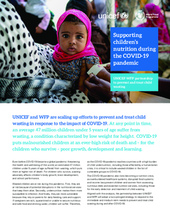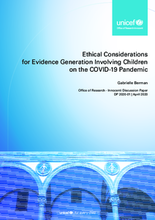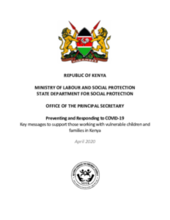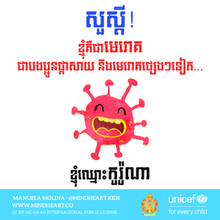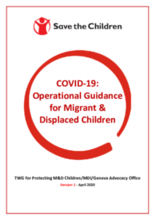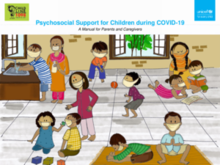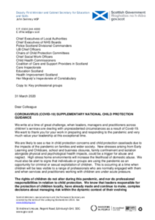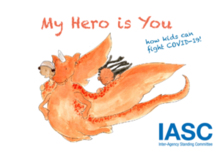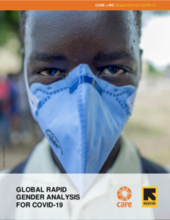This section includes resources on the response to the COVID-19 pandemic as it relates to child protection and children's care.
News on COVID-19 and Children's Care
Webinars and Events on COVID-19 Response
Displaying 521 - 530 of 756
This two-page brief outlines the UNICEF-WFP partnership's two-pronged strategy to respond to the immediate and medium-term needs to prevent and treat child wasting during and after COVID-19.
This paper identifies key ethical considerations when undertaking evidence generation involving children during the mitigation stage of the pandemic (emergency phase), on subject matter relating to COVID-19 once the pandemic has been contained, and once containment policy measures, including lockdowns, have been lifted (post-emergency phase).
This guidance is designed to inform child protection actors in Kenya in light of the COVID-19 crisis. It guides actions targeting, and services provided for, vulnerable children and families, including children living in institutions, children living on the streets, children with disabilities, and others.
This book is written for children (in Khmer) to help them understand the Coronavirus.
This document provides programme guidance across numerous migrants and displaced (M&D) children contexts.
In the context of COVID-19, this manual focuses on psychosocial care of children and prevention of violence in spaces where children stay (child care institutions, families, temporary isolation facilities, NGO shelters, etc.)
This guidance is for Chief Officers, professional leaders in children’s services and child protection committees, who should ensure it is taken account of within local partnerships.
"In this time of profound uncertainty, child welfare systems face unprecedented challenges to ensuring safety, well-being, and permanency for young people," says this joint statement.
This book was a project developed by the Inter-Agency Standing Committee Reference Group on Mental Health and Psychosocial Support in Emergency Settings (IASC MHPSS RG). This is a story developed for and by children around the world on how to cope with the COVID-19 pandemic.
This report is for humanitarians working in fragile contexts that are likely to be affected by the COVID-19 crisis. It is organised around broad themes and areas of focus of particular importance to those whose programming advances gender equality and reduces gender inequalities.

